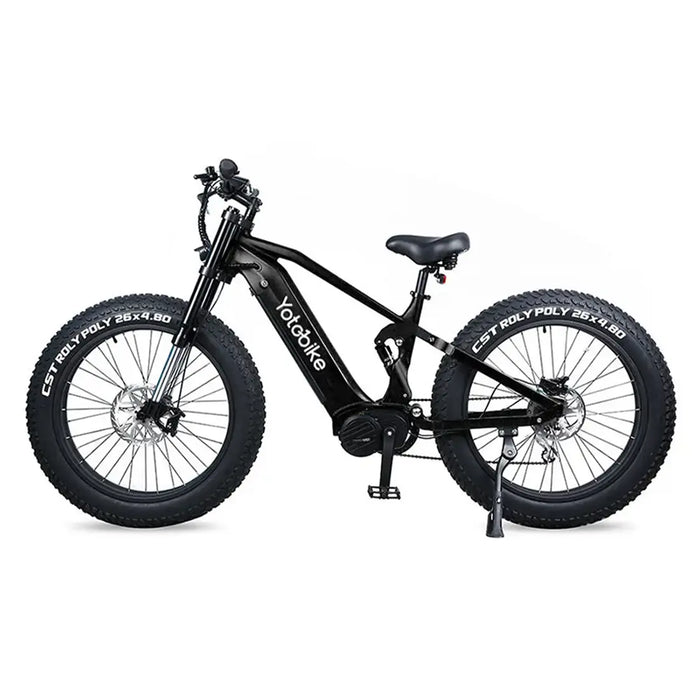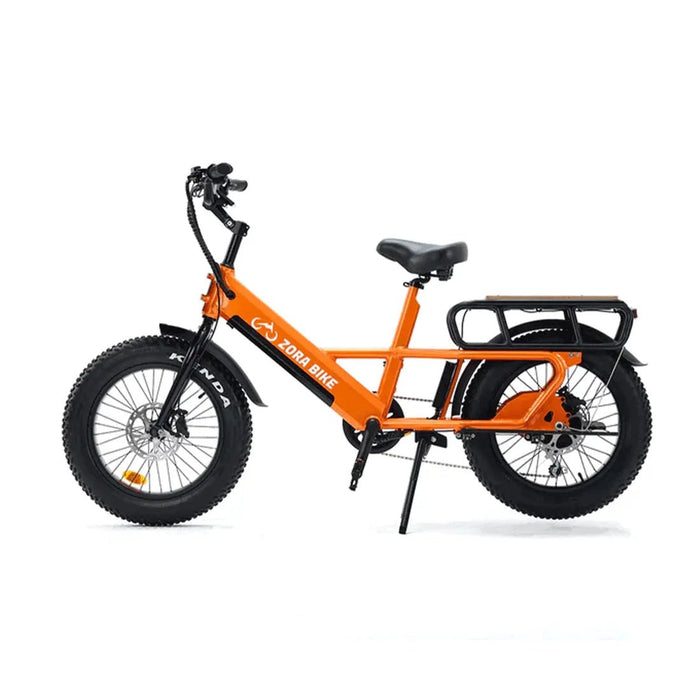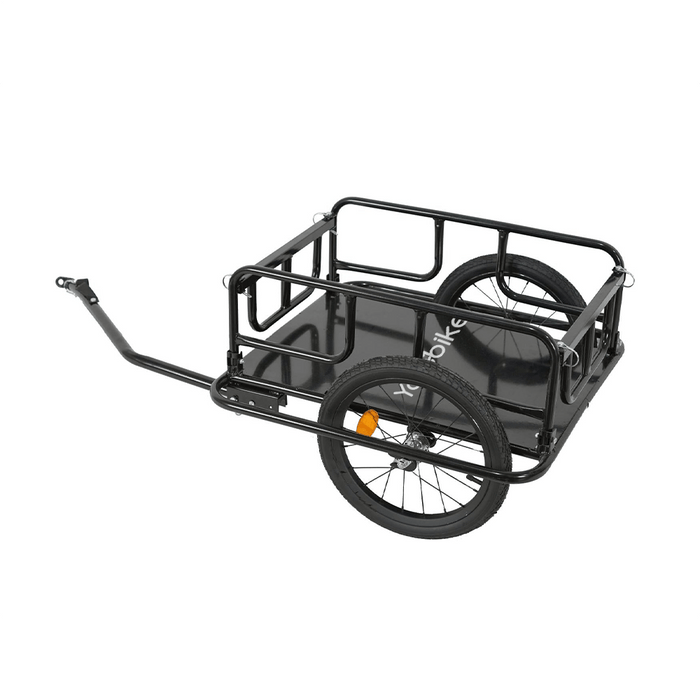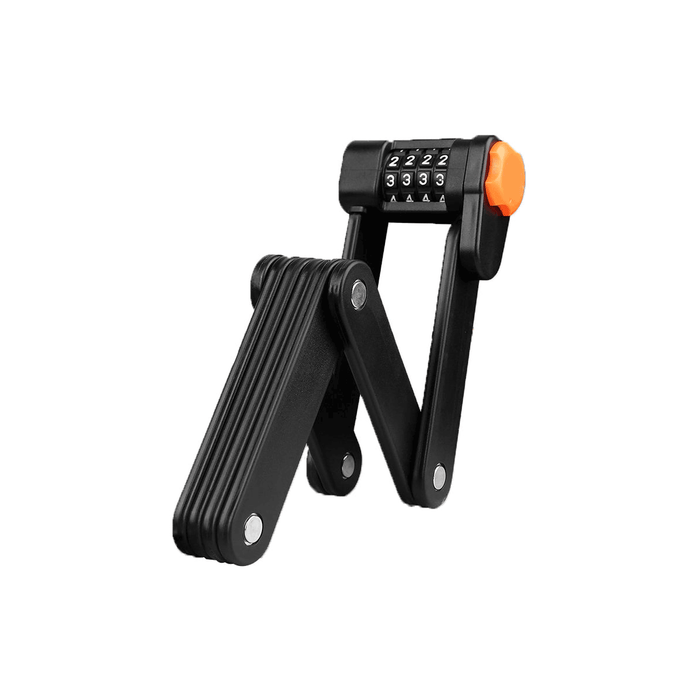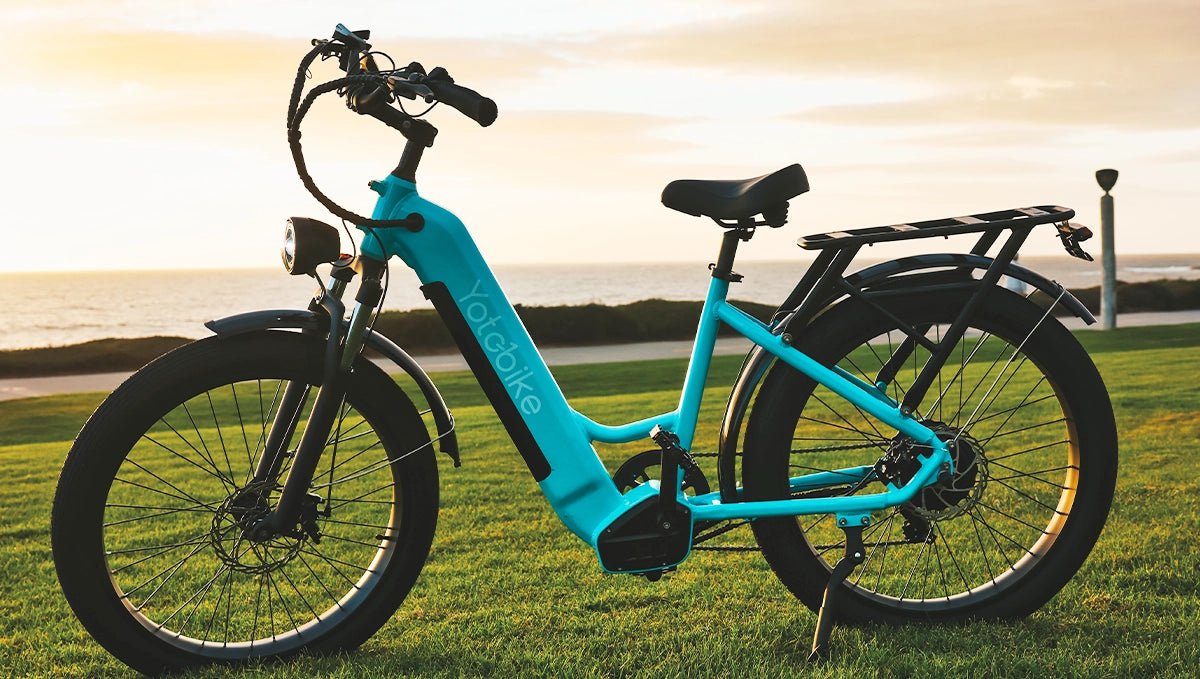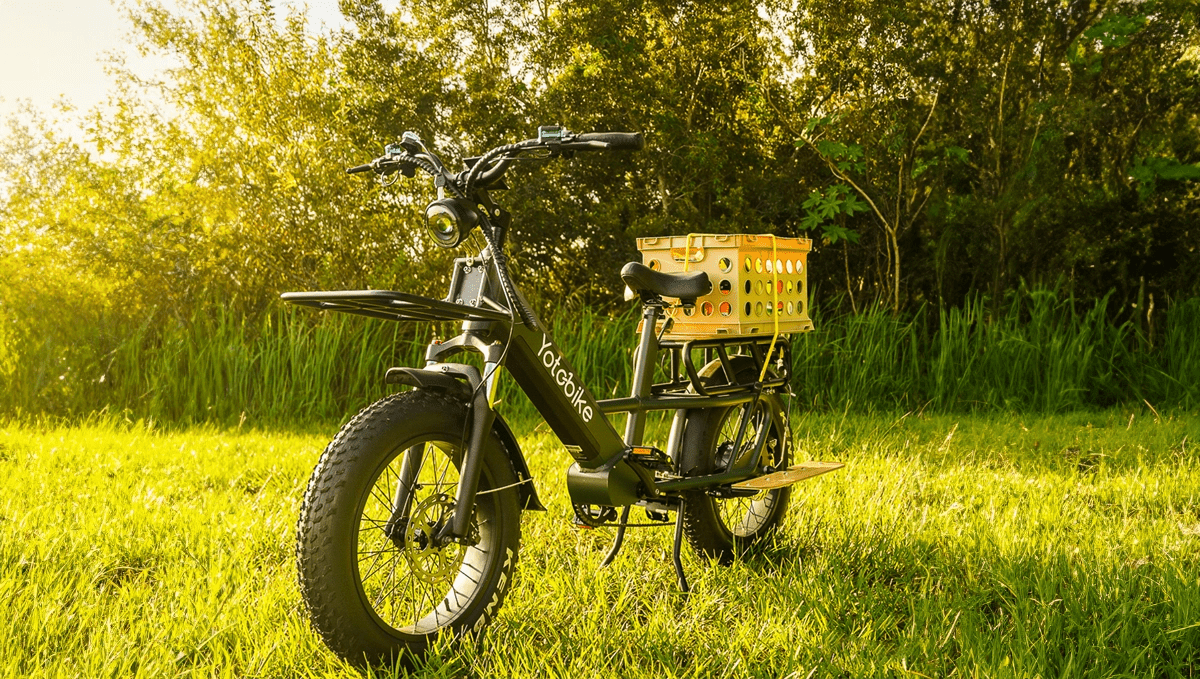
Are e-bikes worth it? Imagine gliding up steep hills, cruising past traffic, and covering longer distances without breaking a sweat. E-bikes promise freedom and efficiency, combining the thrill of cycling with the ease of electric power. But before diving into this eco-friendly trend, it's essential to weigh the pros and cons. From battery life to maintenance and cost, knowing what to consider can help you decide if an e-bike truly aligns with your lifestyle and transportation goals.

What Are E-Bikes?
E-bikes are bicycles equipped with an electric motor that assists with pedaling. The motor provides power to help you pedal, making it easier to travel longer distances or climb hills. While the bike still requires pedaling, the motor reduces the effort needed. Most e-bikes feature a rechargeable battery, and the motor engages when you pedal or use a throttle, depending on the bike's design.
So, if you’re asking, "How do e-bikes work?", it’s simple: the motor assists your pedaling, making it easier to travel faster and farther with less effort.
Benefits and Limitations of E-Bikes
Before deciding if e-bikes are worth it for you, it’s important to understand both their benefits and limitations.
Benefits of E-Bikes
- Less Effort Required: E-bikes make cycling easier, especially on uphill routes or long distances, by providing motor assistance. For instance, Yotobike electric bikes are designed to offer a smooth and effortless riding experience, perfect for both daily commuting and leisure.
- Eco-Friendly: E-bikes are a green alternative to cars, producing zero emissions and helping reduce your carbon footprint.
- Cost-Effective: Although e-bikes can have a higher upfront cost than regular bicycles, they are much cheaper than owning a car, saving you on fuel, parking, and maintenance.
- Health Benefits: Despite the motor assistance, e-bikes still offer a good workout, improving cardiovascular health and building leg muscles.
- Convenient: E-bikes are perfect for city living, as they help you avoid traffic and parking issues while offering faster transportation.
Limitations of E-Bikes
- Upfront Cost: E-bikes are generally more expensive than traditional bicycles, with prices ranging from a few hundred to several thousand dollars.
- Weight: The motor and battery make e-bikes heavier than regular bikes, which can be cumbersome to transport or carry up stairs.
- Battery Life: E-bike batteries last for a certain range before needing recharging or replacement. Most e-bikes can go about 30 to 50 miles per charge.
- Maintenance: E-bikes require more maintenance than regular bikes due to the motor and battery, and repairs can be more costly.
Factors to Consider Before Buying an E-Bike
If you're wondering "Are electric bikes worth it?" the answer depends on several key factors. Consider these aspects before purchasing an e-bike:
E-Bike Types
There are various e-bike types, each designed for different needs. Knowing which type suits you can help determine whether an e-bike is worth it for your lifestyle.
- Commuter E-Bikes: Designed for city commuting, these bikes are perfect for traveling short distances with a comfortable, upright seating position.
- Mountain E-Bikes: Built for off-roading, mountain e-bikes have sturdier frames and more powerful motors to handle rough terrain.
- Folding E-Bikes: If storage space is limited, folding e-bikes can be easily folded and stored or carried on public transportation.
- Road E-Bikes: Lightweight and efficient, road e-bikes are perfect for long-distance travel on paved roads.
Budget
E-bikes can be expensive, with prices ranging from $500 to over $5,000 depending on the model and features. Consider your budget and how much you're willing to spend. High-end models may offer advanced features like integrated GPS, better motor power, or longer battery life.
Primary Use
Think about how you’ll use the e-bike. Will it be for commuting, leisure, or outdoor adventures? If you need a bike for short, paved routes, a commuter e-bike might be all you need. For off-roading, you’ll want a mountain e-bike with strong suspension and tires.
Commute Distance and Terrain
Consider how far you plan to travel and the type of terrain you’ll be riding on. If you live in a hilly area, a more powerful motor and a larger battery may be necessary. For long commutes, choose an e-bike with better range. If you're only using it for short, flat rides, a simpler model may suffice.
Lifestyle
E-bikes are a great fit for those with busy lifestyles who want to save time, avoid traffic, or get some exercise while commuting. They're also ideal for people who enjoy outdoor activities but may find traditional biking too physically demanding.
Who Is an E-Bike Best Suited For?

Electric bikes are suitable for a wide range of individuals:
- Commuters: If you live in a city with heavy traffic, an e-bike helps you get around faster.
- Older Adults: E-bikes reduce the physical strain of traditional cycling, making them a great option for seniors.
- Environmentally Conscious Individuals: E-bikes are an eco-friendly way to reduce your carbon footprint.
- People with Physical Limitations: E-bikes offer assistance, making cycling more accessible for those with joint pain or limited mobility.
- Adventure Seekers: Mountain e-bikes provide a fun way to explore off-road areas with less effort.
Conclusion: Are E-Bikes Worth It for You?
After considering the benefits, limitations, and factors involved in choosing the right e-bike, you can better assess if it’s worth the investment. If you’re looking for an easy, eco-friendly way to commute or simply want to enjoy cycling with less effort, an e-bike may be a great fit. However, if you’re only cycling occasionally or have a limited budget, you might want to reconsider.
Ultimately, whether e-bikes are worth it comes down to your needs, lifestyle, and budget. So, ask yourself: "Are e bikes worth it for me?" and make your decision accordingly.
FAQs
Is it worth having an electric bike?
An electric bike can be worth it if you want an eco-friendly, efficient, and low-effort way to commute or travel long distances. It’s especially useful for hilly areas or if you want to avoid traffic. However, the upfront cost and maintenance should be considered before deciding.
Do e-bikes require a license to ride?
In most places, e-bikes don’t require a license to ride. However, some regions have specific regulations about age limits or speed restrictions. It’s important to check local laws to ensure you comply with any licensing, helmet, or registration requirements.
Can you ride an e-bike without pedaling?
Yes, some e-bikes allow you to ride without pedaling using a throttle. These e-bikes function more like a scooter, providing full motor assistance without needing to pedal. However, not all e-bikes have this feature, so you should verify if the model you’re interested in supports throttle-only riding.
Are e-bikes good for mountain biking?
E-bikes are great for mountain biking, especially on challenging trails. They offer motorized assistance, making it easier to climb steep hills and navigate rough terrain. Mountain e-bikes are designed with sturdy frames, thicker tires, and stronger motors, making them ideal for off-road adventures.




